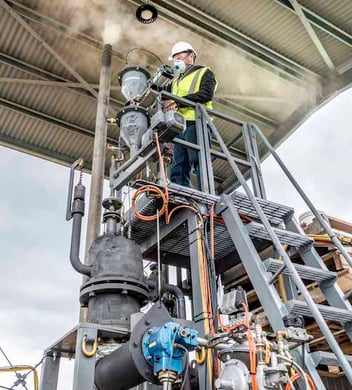Australian researchers turn biosolids into bricks
Researchers from the Royal Melbourne Institute of Technology (RMIT) are building a solution to the millions of tonnes of biosolids stockpiled or sent to landfill each year.
Led by Associate Professor Abbas Mohajerani, the team have shown it’s possible to turn unused biosolids – which make up about 30% of the world’s total wastewater sludge – into fired clay bricks.
The research, published in Buildings, was funded by RMIT, Melbourne Water and the Australian Government, and compared bricks incorporating 10% to 25% biosolids.
The team found bricks containing 25% biosolids require about half the energy to fire than conventional bricks and are cheaper to produce.
Mohajerani said the research sought to tackle two environmental issues: the stockpiles of biosolids, which take up valuable land and could be emitting greenhouse gases, and the impact of excavating soil to produce bricks.
“More than 3 billion cubic metres of clay soil is dug up each year for the global brickmaking industry, to produce about 1.5 trillion bricks,” Mohajerani said.
“Using biosolids in bricks could be the solution to these big environmental challenges.”
 Associate Professor Abbas Mohajerani has shown it is possible to turn biosolids into bricks.
Associate Professor Abbas Mohajerani has shown it is possible to turn biosolids into bricks.
Although biosolids are used as fertiliser and for land rehabilitation, a combined 5 million tonnes are disposed of across Australia, New Zealand, the European Union, the United States and Canada each year.
Mohajerani said using a minimum 15% biosolids in 15% of bricks produced would provide an environmentally friendly solution to the problem.
“It’s a practical and sustainable proposal for recycling the biosolids currently stockpiled or going to landfill around the globe,” he said.
While the bricks passed compressive strength tests, we won’t be constructing buildings made from biosolids just yet. As biosolids can have significantly different chemical characteristics, the researchers said further testing is needed before large-scale production.
Want to learn more about biosolids? Don’t miss the biosolids stream at Ozwater’19 in May. To learn more and to register, click here.

